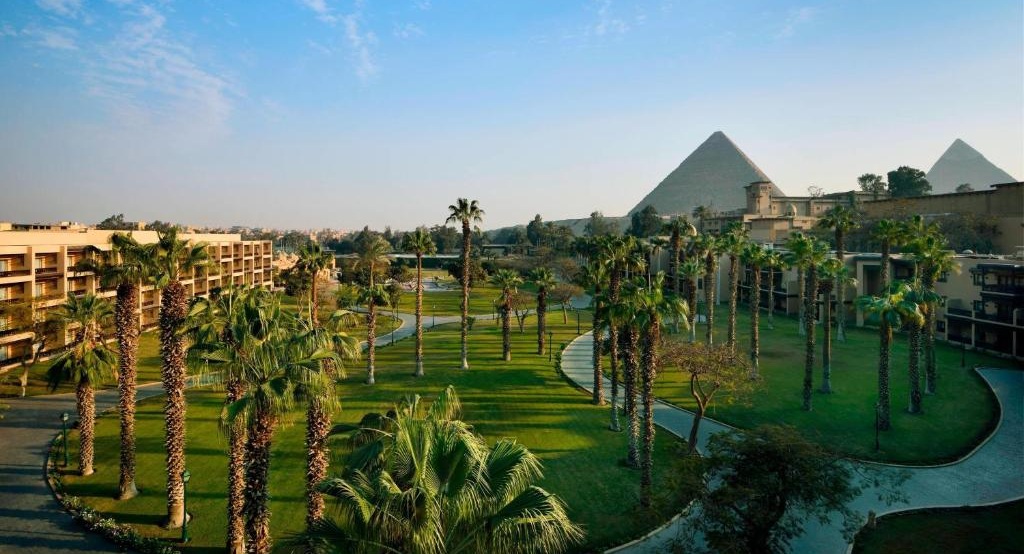ABS Courier: An Egyptian Success Story in Logistics
Updated 5/9/2023 8:00:00 AM
Arab Finance: The courier and freight industry in Egypt has been growing rapidly in recent years. This is due to the country's strategic location at the crossroads of Africa, Europe, and Asia, as well as its expanding economy and the government’s development of infrastructure projects.
That is why Arab Finance sat down with Shadi Louis, CEO of ABS Courier and Freight Systems, to discuss the company’s profile, services, and strategy.
1-How did ABS Courier and Freight Systems come to be?
ABS was established in 2002, defining the vision of Mohamed El Demerdash, as the first 100% Egyptian courier and logistics service provider. It started in Alexandria and Cairo with one branch each and achieved different milestones until 2023 with over 30 branches and 800 employees.
2-How did ABS develop from an Egyptian company supporting international courier companies to a courier and freight company that provides diverse services locally and internationally?
ABS's mission was to provide local services at the highest standards as well as become a trusted partner for different government entities and the financial sector. As the brand augmented, new partners of a different product nature (e-commerce) approached us to become their logistics service provider, and thus our services expanded with international vendors for the international express service. Looking at the future of logistics, we decided to further expand into international markets through joint ventures with affiliates in the GCC, USA, UK, Turkey, and China. Through these partnerships, we were able to build a network and thus provide tailored services to clients based on their needs.
3-Can you give further details on the company’s performance? What is your yearly growth rate, for instance?
ABS Overall service levels have improved as its network coverage has expanded all over the country, with over 30 branches and 2 central hubs. The injection of a variety of vehicles, such as vans, jumbos, sedans, tricycles, and motorcycles, enhanced the reach to the most inner and remote cities and villages within a more than sensible transit time not exceeding 72 hours.
In 2020, ABS delivered close to 2.8 million shipments, while in 2022, 6.1 million shipments were delivered. With a projection of 8 million shipments in 2023, we are talking of a growth rate of 290%. Our next milestone is to average 1 million shipments a month by 2025.
4-What international services does ABS provide?
We provide pickup from any country worldwide; freight courier and cargo services (air, sea, and land); and cross-border e-commerce to and from the MENA region. In addition to clearance and airport formalities, export and import, transportation, warehousing, fulfillment, reverse logistics, order management, and transit shipments break bulk.
5-While we are still on the subject, what are the services that make ABS unique? And how do you preserve customers' loyalty?
ABS's uniqueness started with its establishment and the mission to create a variety of services meeting different client requirements, especially assisting startups in their business growth. Our clients are partners, and their progression is of mutual benefit to us. Our support is flexible, reaching the point where we structure agreements that nurture this growth.
6-One of the countries you work in is Russia. Did the Russian-Ukrainian war affect your business?
From a business perspective, the direct effect is that the destination is no longer serviceable in terms of air shipping. In addition, the war weighed negatively on global economic activity, adding to inflationary pressures worldwide and impeding the post-pandemic recovery.
7-ABS started with a paid capital of EGP 430,000. What is the size of the company's investments now?
We sought to capture a larger share of the market and adjust to client needs, which are growing rapidly. ABS was able to inject multiple capital investments generally to increase operational capacity, IT development, staff training, etc., as well as generate more revenue. In the past three years, over EGP 90 million have been injected. All investments were made without reaching out to external investors to ensure our vision as a 100% Egyptian company.
8-How do you see the competition and the market in Egypt now, especially from well-known international companies that have a strong presence in the market locally?
The Egyptian market is healthy, and many merchants are entering the market, especially with Egyptian-made products that greatly delight us with their quality and prices in particular. With this increase, the market is still in demand for strong logistics service providers. There will be continuity with their study of the market and ability to accommodate customer requirements that are beyond the usual pick-up and delivery.
A healthy competition with business competitors should be nothing but inspirational. Knowing where you are and how far from your competition you are, either catching up or leading, is all that it should be.
9-Are there any geographically limited places where you do not deliver?
Very few countries are totally restricted due to economic sanctions and embargoes, while some other destinations (war-risk countries) are serviceable but incur extra charges.
10-In your opinion, how did the pound's flotation and the rise in oil prices impact logistics and delivery businesses in Egypt?
Naturally, the purchasing power decreases due to inflation and certain classes of people change the category of their shopping lists and prioritize according to importance, to the extent that some items on their priority list are moved to the luxury list. Saying that, there is still a demand, and merchants need to supply, and we support them in absorbing the possible margin from their service costs. Still, we are confident that stability in the market will be reached and that Egypt will sustain its advantages in accommodating investors.
Related News










